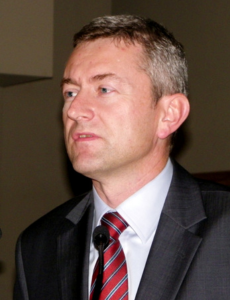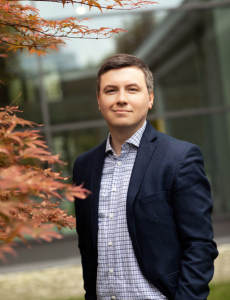WP4 “Democratisation in conflict-driven contexts” aims at analysing democratisation in a turbulent security environment & explores the consolidation of democratic governance by a state's security institutions; the prevention and neutralisation of anti- and non-democratic policymaking; a democratic resilience building in the context of tensions and societal cleavages.
This project pursues three research tasks:
Task 1: Mapping democratic fragility: Insights into sources of divisions, cleavages, and instability during the democratization and democratic consolidation processes in the 21st century
It aims to make analytical insights into the roots of transitions from non-democratic rule to stable democratic regimes from the security-led perspective, highlighting the sources of instability, divisions, tensions, and overt conflicts within states and societies. By identifying and assessing the impact of factors undermining democratic order and hampering effective democratization, a broad overview of complex security issues will be provided to map the critical points and zoom in on the strongest structural and functional impediments to successful democratization.
Task 2: Unraveling the disruptive performance of anti-democratic actors
It addresses the problem of deliberate delegitimization of democratic governance by the disruptive performance of social and political actors. It will focus on radical, extremist, and subvertive players/performers who exploit new opportunities offered by technological advancements, global IT infrastructure, and cultural transformations. It aims to accentuate the variety of methods, means, and ways that anti-democratic actors utilize for their disruptive performance, creating thereby a serious threat to public security and challenging state institutions responsible for democratic order and internal stability.
Task 3: Building resilient democracies: A security-centred approach
It gives insights into the impact of threats and risks on the stability and performance of democratic governance. It examines resilience building as a critical dimension of democratic robustness and a key process of securitization of democratic order. Resilience will be addressed as an enduring trait of security systems set up in the course of democratization, testing their effectiveness and verifying their level of adaptability to the changing security environment.

Artur Gruszczak is a Professor of Social Sciences, Chair of National Security at the Faculty of International and Political Studies, Jagiellonian University in Krakow. He is a Faculty Member of the European Online Academy, Centre International de Formation Européenne in Nice. He was Junior Visiting Fellow in Institut für die Wissenschaften vom Menschen (IWM) in Vienna, Visiting Professor at Universidad Nacional de Colombia in Bogota, Universidad Católica de São Paulo, Complutense University of Madrid, University of Rochester, NY. He has taught courses on EU Justice and Home Affairs, EU Internal Security Policy, International Policy of Counter-terrorism, Terrorism and Counter-terrorism, War and Conflict. He has provided expertise in security, migration, and intelligence matters for the Polish Ministry for Foreign Affairs and Ministry for Internal Affairs, the Office of the Polish Prime Minister, the Polish Ombudsman, the European Parliament, and independent analytical institutions, such as Statewatch in London, Oxford Analytica and GLOBSEC in Bratislava.
His principal interests and research areas include: Euro-Atlantic security; EU intelligence cooperation; and evolution of warfare in the 21st century. He published extensively on these topics. His scholarship contains 11 academic books (four as co-author), editorship of 11 collected volumes (five as a co-editor), and authorship of 100 chapters and 70 articles in Polish, English, Spanish, Portuguese, Czech, and Chinese languages.
He is the author of the monographic book on Intelligence Security in the European Union. Building a Strategic Intelligence Community published with Palgrave Macmillan in 2016.
He co-edited with Paweł Frankowski two collected volumes: Technology, Ethics and the Protocols of Modern War (Routledge, 2018) and Cross-Disciplinary Perspectives on Regional and Global Security (Palgrave Macmillan, 2018). Forthcoming is The Routledge Handbook of the Future of Warfare, co-edited with Sebastian Kaempf (Routledge, 2023).

Monika Sawicka holds a PhD in Political Studies (2018), a Master of Arts in Portuguese Philology (2010), and a Master of Arts in International Relations from the Jagiellonian University. She studied at the Faculdade de Letras at the University of Porto in the 2009-2010 academic year (Erasmus Exchange Program). Between 2011 and 2022, she conducted several research projects in Brazil, including in the Archive of Diplomatic Documentation of Brazil's Ministry of Foreign Affairs in Brasília and Rio de Janeiro. She was a visiting lecturer at the Federal University of Santa Catarina (online course in the winter semester of 2021/2022) and the State University of Rio de Janeiro (August 2022). She is a member of the JU Brazilian Studies Lab and cooperates with the Terra Brasilis Foundation. Author of two monographs (Brazil's International Activism: Roles of an Emerging Middle Power, New York: Routledge 2023; Brazylia w systemie międzynarodowym. Role średniego mocarstwa nowego typu, Kraków: Universitas 2020), co-editor of two collective volumes (including La violencia en América Latina. Retos y perspectivas para el futuro, ed. Ángel-Baldomero Espina Barrio, Karol Derwich, Monika Sawicka, Krakow: Jagiellonian University Press, 2021), a special issue of the journal Politeja, and academic articles in Polish and English.
 Maciej Stępka, Ph.D. is a political scientist, an Assistant Professor at the Institute of European Studies, and a member of the Jagiellonian Centre for Migration Studies, Jagiellonian University in Kraków. He earned his degrees from the Jagiellonian University (MA), University of Amsterdam (MSc), and University of Warsaw (PhD). He specializes in new and critical security studies, focusing mainly on the migration-security nexus, EU crisis management, securitization studies, and research on risk and resilience. His most recent publications include an open-access monograph entitled "Identifying Security Logics in the EU Policy Discourse: The ‘Migration Crisis’ and the EU" (Springer 2022).
Maciej Stępka, Ph.D. is a political scientist, an Assistant Professor at the Institute of European Studies, and a member of the Jagiellonian Centre for Migration Studies, Jagiellonian University in Kraków. He earned his degrees from the Jagiellonian University (MA), University of Amsterdam (MSc), and University of Warsaw (PhD). He specializes in new and critical security studies, focusing mainly on the migration-security nexus, EU crisis management, securitization studies, and research on risk and resilience. His most recent publications include an open-access monograph entitled "Identifying Security Logics in the EU Policy Discourse: The ‘Migration Crisis’ and the EU" (Springer 2022).

